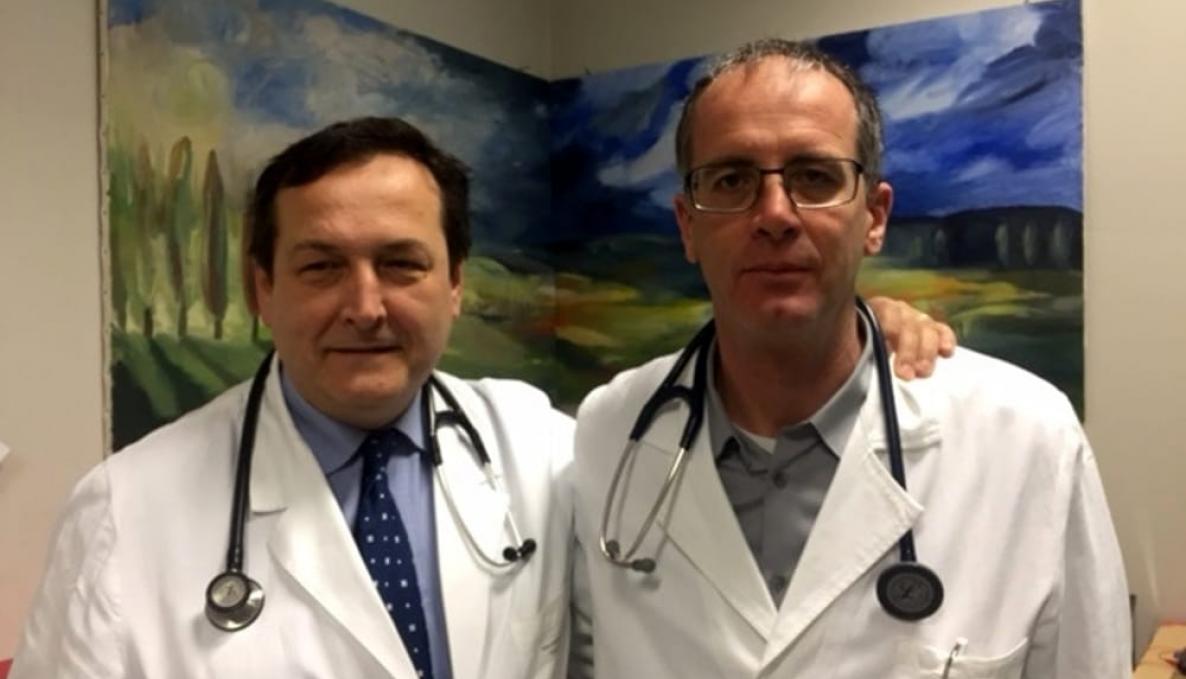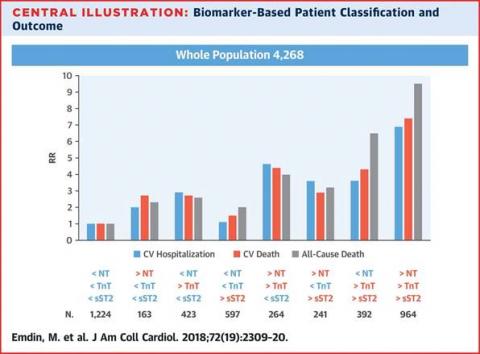Prognostic value of biomarker sST2 in heart failure, the leading cause of hospitalization and death in the Western World, was published in the Journal of the American College of Cardiology

A study by researchers Michele Emdin, Alberto Aimo, Claudio Passino, Giuseppe Vergaro and Andrea Ripoli of Sant’Anna School Life Sciences Institute and Fondazione Toscana Gabriele Monasterio with the support of scientists from European and American research centres in Milan, Barcelona, Minneapolis, Oslo, Tromsø, Maastricht, Groningen and Boston, assessed the independent prognostic value of sST2 - Soluble suppression of tumorigenesis-2 in chronic heart failure. The study was published in the Journal of the American College of Cardiology.
Heart Failure (HF) is the leading cause of hospitalization and death in the Western World. The study undertaken by eminent Italian scientists demonstrates that sST2 biomarker related to inflammation and fibrosis together with N-terminal pro−B-type natriuretic peptide (NT-proBNP) and high-sensitivity troponin T (hs-TnT) yielded strong, independent predictive value for cardiovascular mortality and HF hospitalization in chronic HF.
Researchers highlighted that the risk of all-cause death, cardiovascular death, and HF hospitalization increased by 26%, 25%, and 30%, for each of three markers respectively, per each doubling of sST2. A previous study conducted in Europe and the US by researchers of Sant’Anna School and Fondazione Toscana Gabriele Monasterio defined a threshold for patients with chest discomfort. A new limit (18 ng/L) was identified in patients with range levels of 8 to 29 ng/l. This new research, during a 2.4-year median follow-up, assessed the best sST2 cutoff for the prediction of all-cause and cardiovascular death and HF hospitalization at 28 ng/ml deserving consideration to be part of a multimarker panel together with NT-proBNP and hs-TnT.
4,268 patients with ischemic HF were evaluated. NT-proBNP, hs-TnT, and sST2 were 1,360 ng/l, 18 ng/l and 27 ng/l respectively. During the 2.4-year median follow-up, 1,319 patients (31%) experienced all-cause death for cardiovascular causes. Among them 4,118 patients (96%) were hospitalized at least once for worsening HF over 2.2 years
“This absolutely original research contribution– said Michele Emdin and Claudio Passino – received credit and recognition from eminent cardiologists and confirms the prognostic role of biomarker sST2 with NT-proBNP and hs-TnT for the diagnosis and treatment of acute and chronic heart failure and its impact on clinical practice”.
Cover photo, from left to right: Dr. Michele Emdin and Dr. Claudio Passino. Photogallery: Predicted probabilities of HF shown in the Table.




